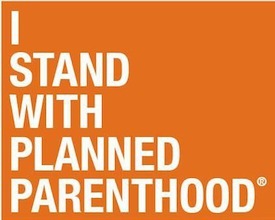It’s nice to see that Nancy Brinker, founder of Susan G. Komen for the Cure, has found meaningful work to do now that she is no longer CEO of that organization. It’s not the least bit surprising to see that she’s still in denial about the events that led to the end of her tenure as CEO.
18 months after turmoil over a funding flap with Planned Parenthood, Brinker said that longer perspective has helped her and the charity move forward.
“We had a couple of tough years, but, honestly, no year was as tough in my life as losing my sister,” she said in an interview with The Dallas Morning News.
Brinker traveled this week to Tanzania to participate in the George W. Bush Institute’s African First Ladies Summit. Dallas-based Komen is a partner in Pink Ribbon Red Ribbon, Laura and George Bush’s cancer-fighting initiative in Africa. And the charity plans to ramp up its global outreach.
Brinker, in the interview, again apologized for the funding tiff that’s still being felt. Komen recently canceled some of its signature races because of a drop in donations.
The controversy started in early 2012 after Komen initially announced plans to end grants to Planned Parenthood for breast cancer screenings. Komen and Brinker, targets of a public backlash, reversed course within a week.
While she said “a lot of mistakes were made,” she emphasized that at Komen, “we’re way beyond it.” She said the charity’s resulting self-evaluation has allowed it to emerge stronger than ever, with improved leadership and communication.
“You have to go through stuff every once in a while,” she said. “We got to take a deep look at our organization and fix some of the things that weren’t working right.”
Brinker stressed that the decision wasn’t political, despite speculation inside Komen and out that it was made because Planned Parenthood provides abortion services.
She said she can’t “hide the fact that I served in a Republican administration” but that she and Komen’s board never operate politically.
Instead, she said, a contentious political year — fueled by the presidential campaign — caused the decisions to be interpreted in a certain way.
That Nancy Brinker could characterize recent Komen history in this whitewashed fashion is, as I said, not a surprise to me. Nancy Brinker clearly showed that she didn’t quite inhabit the same plane of reality as the rest of us while that history was being played out. But for this version of events to be published in a major newspaper without even a mention of the name Karen Handel is journalistic malpractice. I’m not going to do a detailed rebuttal of Brinker’s passively-voiced fantasy facts here, because life is short and we all have better things to do. A simple click on that Wikipedia link above will be sufficient to show that things were not as Nancy Brinker chooses to remember them. I understand that this was intended as a soft story about Brinker, who is doing laudable work in Africa now, not a comprehensive rehash of a past political fight. But come on. Either tell the story of what happened at Komen seriously or don’t tell it at all.


Have you read Karen Handel’s book “Planned Bullyhood”?
Good Lord, Yvonne, I thought you were writing for/like The Onion. No! It’s true, it’s true! There is such a book.
Bleargh.